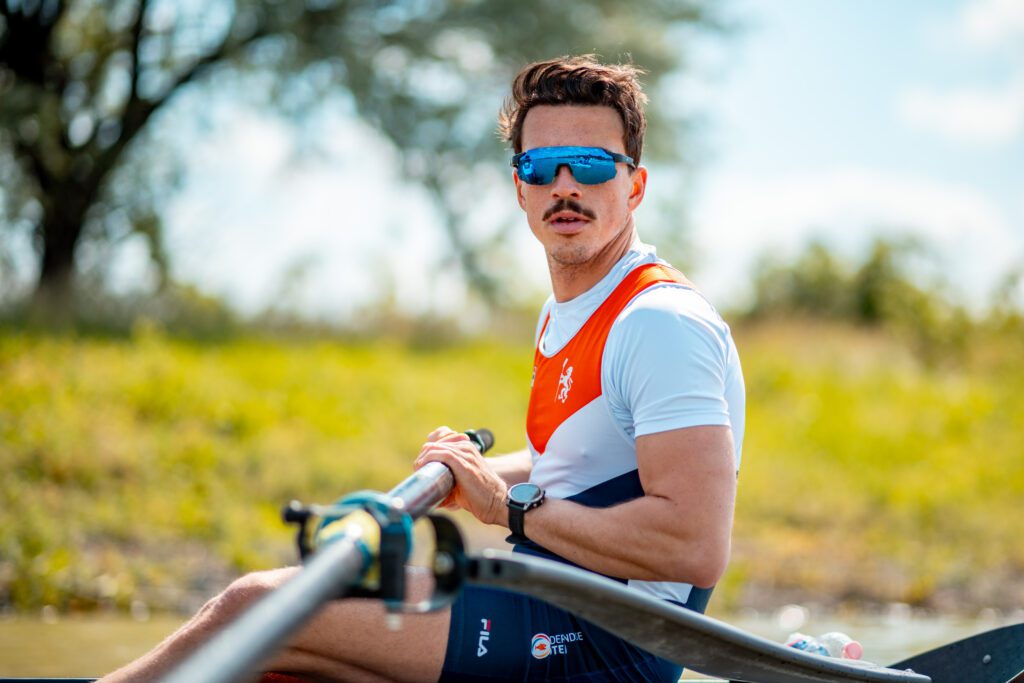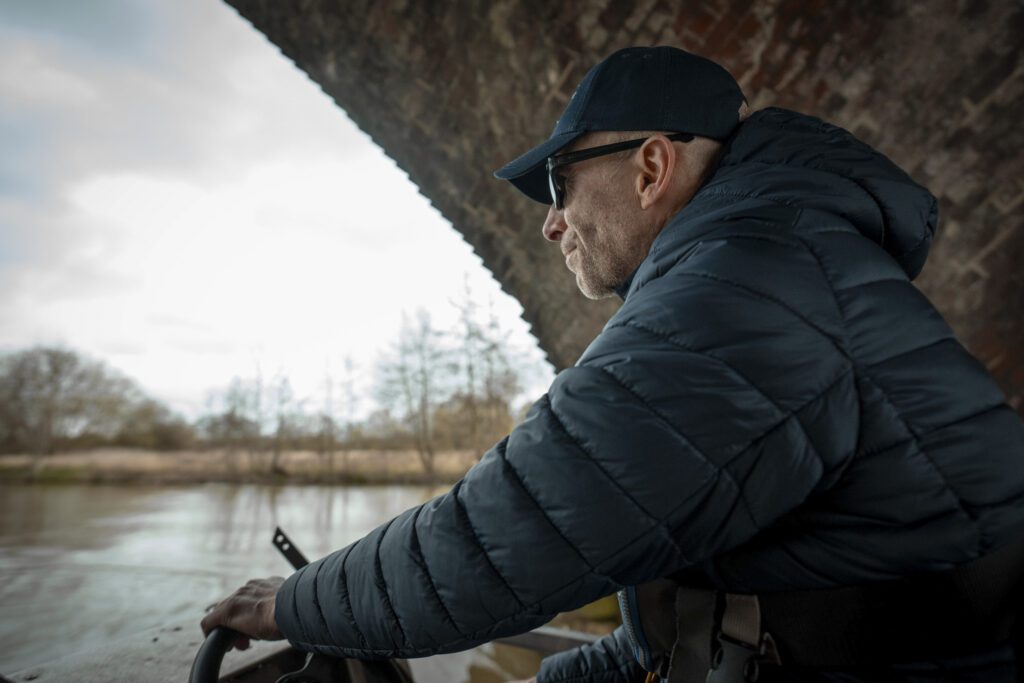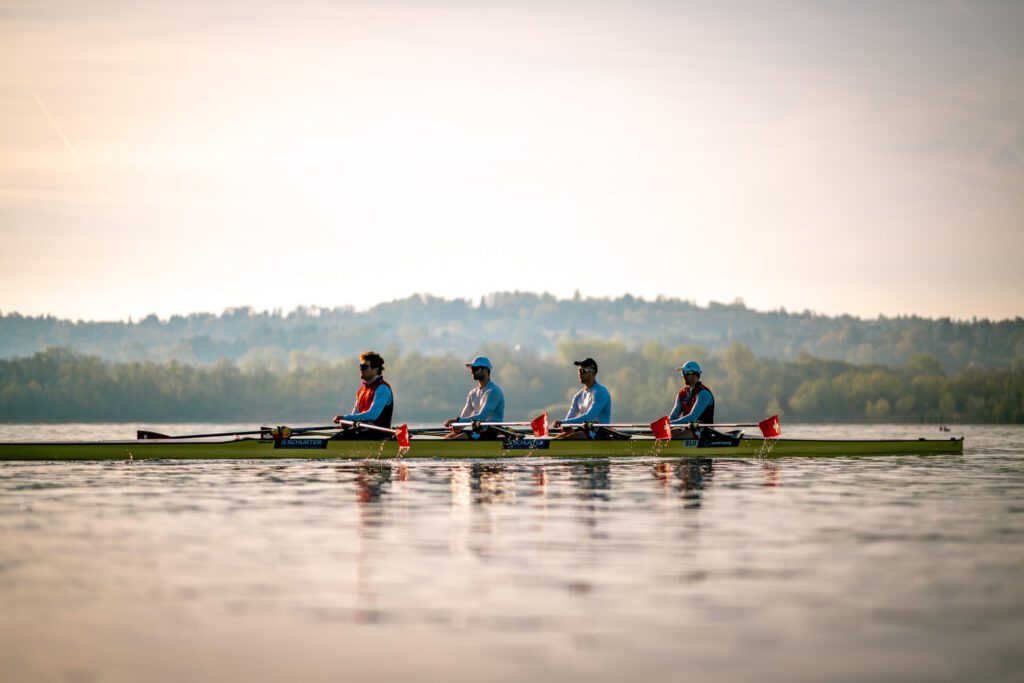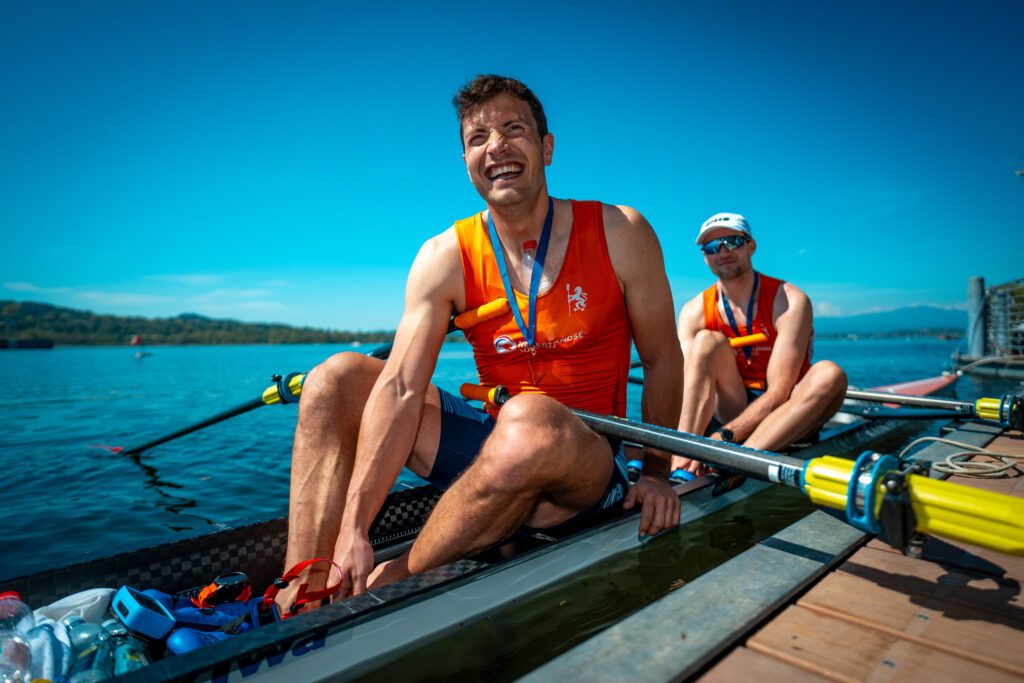Sports broadcaster Andrew Cotter is the lead BBC commentator for the 2023 Oxford-Cambridge Boat Race. Row360 caught up with Cotter to find out what life’s like behind the mic and why his dogs, Olive and Mabel, best be close at hand should he ever venture onto the water.
“If you lined up 5 million people in front of you, you would be incredibly nervous.”
Andrew Cotter
What’s it like to call The Boat Race?
As a commentator you want to commentate on big sporting events. People talk about the Boat Race as being a private match for public consumption. Even though, compared to modern professional sport, it is quite a small affair, at the same time, it is somehow massive. It has tradition. It has always been there on television in the spring. You have the Grand National, the Masters Golf, and the Boat Race. People watch it.
It is an event that 98% of the viewing public won’t know too much about; they won’t know the intricacies of rowing and they won’t be rowing fans per se but they want to watch. That’s why having it on the BBC is so important because we can reach that wider audience. It is for the same reason that we explain things that are obvious to rowing aficionados. Like any sport on the BBC, you have to make it non-exclusive. You bring it out to a wider audience.
On BBC Radio there was the great John Snagge who was a legendary broadcaster and then Barry Davis who was my predecessor on the BBC (before ITV). The rowers continue a lineage and we do too, and I hope we can for many years to come.
“I used to kill myself on the Concept2”
Andrew Cotter
When was your first Boat Race?
When it came back from ITV, in 2010, they told me about six months before. My notes were most extraordinary, I overprepared. The Boat Race goes by in a flash. You would think ±18 minutes is a long time [but] it’s no time at all. You only use about 2% of your notes.
You want to say so much about the rowers and their history but you end up commentating on the race, where they are on the river, what is the cox saying, is there going to be a clash. You don’t have enough time to give out all the information. I leave it to the co-commentators to provide the expert analysis about technique or stroke rate. I make more general observations, like pointing out the landmarks which have become so famous along the course.
Click here for more coverage of the 2023 Boat Race.
Do you get nervous?
You always get nervous. It’s funny because if you lined up 3, 4, or 5 million people in front of you, you would be incredibly nervous. Instead, there is a microphone so there is a bit of detachment. You know they’re out there but you can’t see them and that helps. Otherwise, I’d just collapse in a puddle!
The nerves are there because you want to get it right and you want to do it justice. I’m not steeped in rowing history, I’ve never rowed. Well, I’ve never been on the water, I used to kill myself on the Concept2 until my back went; poor technique I’m sure. But as I’m not steeped in rowing history I have to make sure I have the knowledge to back it up. You need to have everything covered. There will be people watching who are steeped in rowing and the Boat Race.
“As a commentator you want to commentate on big sporting events.”
Andrew Cotter
So, you were a fan of the erg?
When I was younger I sneaked below 7 minutes for a 2k, a few times, but I don’t have the leg strength. Rowing is so much about the legs. You see the bodybuilders at indoor champs fly-and-die with their upper body while their legs are doing nothing.
I enjoyed it as a physical exercise. I don’t think people realise that rowing on the water is nothing like rowing indoors. There are other things involved like balance, technique and feathering. It is a very, very different thing. One of these days I’ll get out on the river but I’ll end up in the water and my dogs will have to come and rescue me!
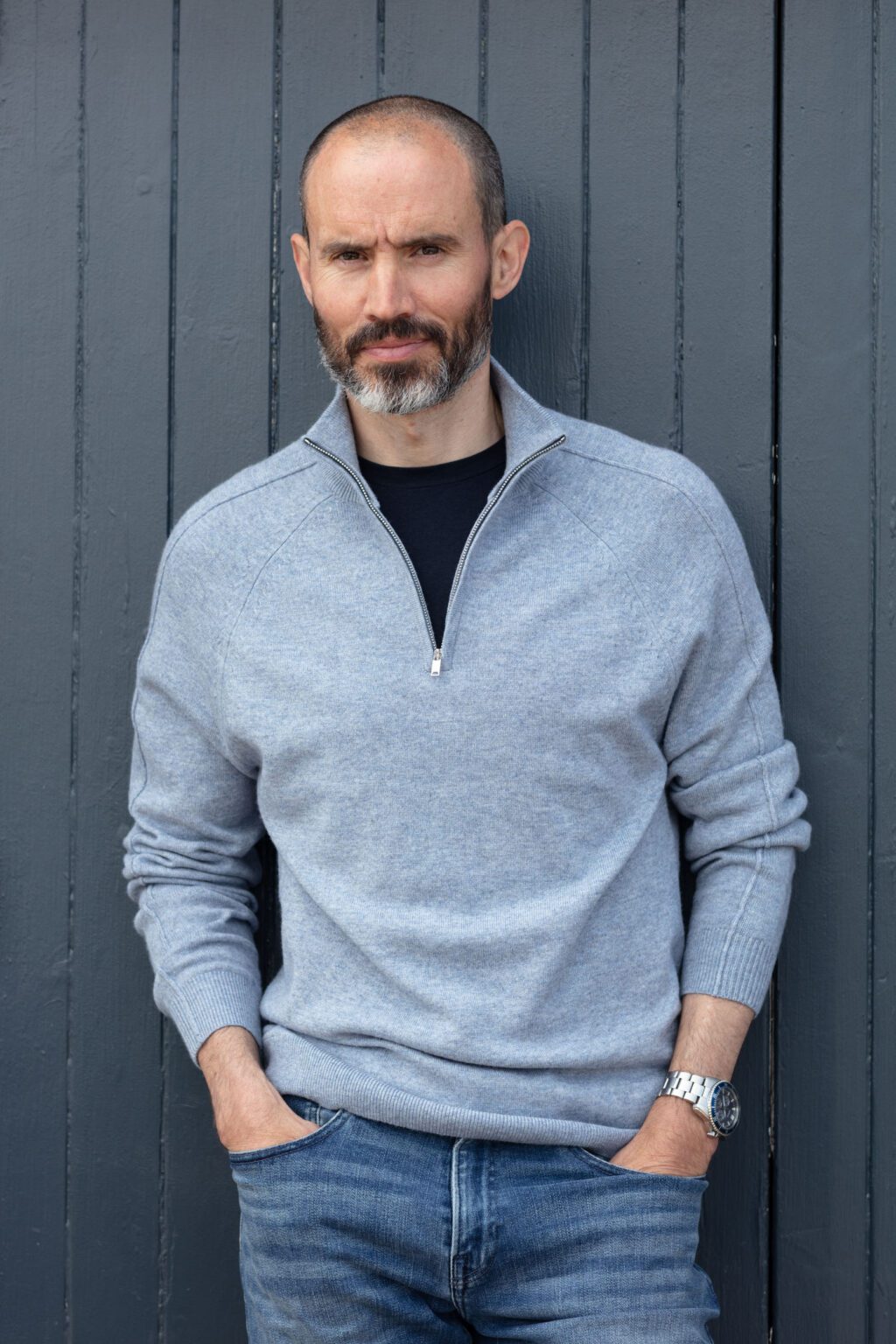
Click here for a free copy of The Gemini Boat Race 2023 Official Programme
